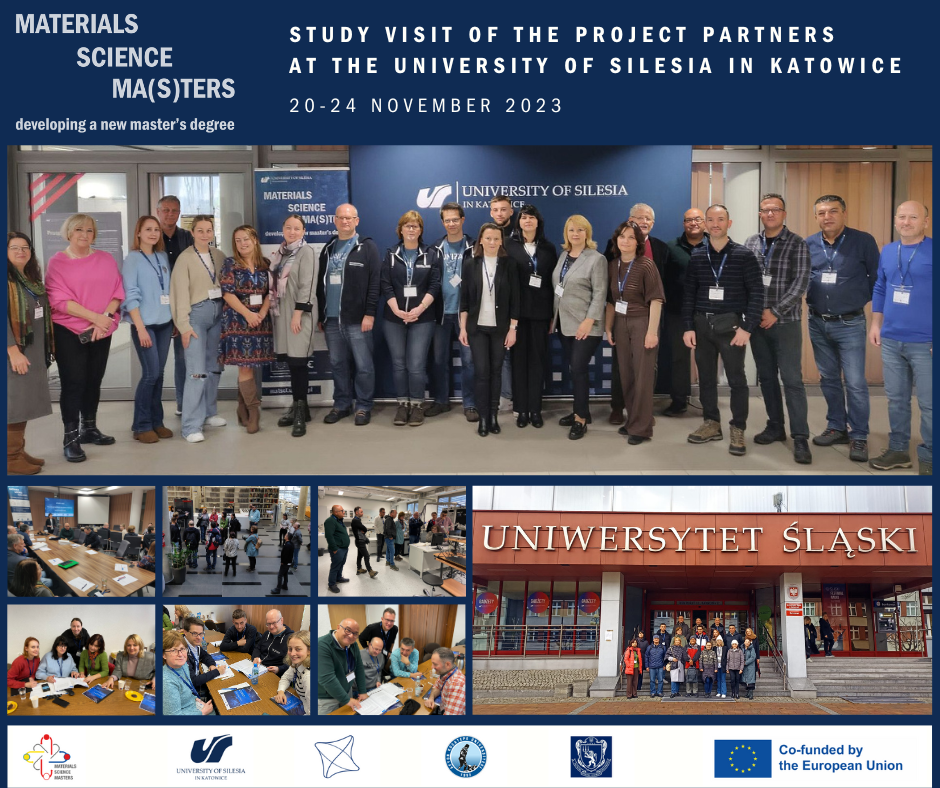From November 20 to 24, a study visit was conducted as part of the ‘Materials Science Ma(s)ters – developing a new master’s degree’ project co-financed by the European Union. This five-day visit enabled project members to engage in various activities. During workshops, they explored a range of artificial intelligence tools, collaborated, and delved into diverse teaching methodologies and their application in education. The workshops’ discussions also provided an invaluable opportunity for the international exchange of best practices in the field of materials science education.
The visit included an introduction to SPIN-LAB, a state-of-the-art research infrastructure center dedicated to microscopic research. The center’s advanced facilities and resources were highlighted, providing insights into the latest developments in the field.
Additionally, the visit featured a comprehensive exploration of The Scientific Information Center and Academic Library (CINIBA). This segment focused on how CINIBA enhances education quality and offers the academic community and other users access to the latest information sources and documents supporting science and education. Special attention was given to the development of IT infrastructure, modern library systems, the use of new technologies, and the importance of access to professional search tools.
The program also included a series of presentations by academic teachers, each showcasing innovative student education techniques. These educators emphasized the integration of blended learning, which combines online digital media with traditional classroom methods to enhance learning. Moreover, participants had the opportunity to visit modern laboratories, where students actively engaged in hands-on tasks during classes, demonstrating the practical application of theoretical knowledge.
